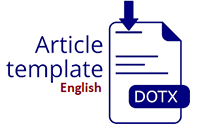THE INFLUENCE OF WORK-LIFE BALANCE AND PERCEPTIONS OF EMPLOYEE RELATIONS ON THE WELL BEING OF GENERATION Z EMPLOYEES IN THE CITY OF BANDUNG
Abstract
PURPOSE - Finding out how work-life balance and employee relations perspectives impact the wellness of Generation Z employees in Bandung is the aim of this study.
METHODOLOGY - The quantitative research methodology makes use of two data analysis techniques: multiple linear regression and descriptive statistics. Questionnaires were sent as part of the data collection methods. The sample used amounted to 222 respondents. Sampling using purposive sampling with the criteria of Generation Z employees who have worked for at least 6 months.
FINDING - According to the study's findings, work-life balance and opinions about employee interactions both significantly and favorably impact workers' well-being
Full Text:
PDFReferences
Arimie, J. C., & Oronsaye, A. O. (2020). Assessing Employee Relations and Organizational Performance : A Literature Review. International Journal of Applied Research in Business and Management, 01(01), 1–17.
https://doi.org/10.51137/ijarbm.2020.1.1.1
Bakar, A. Y. A. (2024). The Application of ‘Work-Life Balance’ in Relation With Employees’ Well-Being: An Exploratory Study. Journal of Law and Sustainable Development, 12(2), 1–20. https://doi.org/10.55908/sdgs.v12i2.3243
Bulińska-Stangrecka, H., & Bagieńska, A. (2020). Intangible Resources For an Organization’s Sustainability Potential. Entrepreneurship and Sustainability Issues, 8(1), 741–761. https://doi.org/10.9770/jesi.2020.8.1(50)
Bulińska-Stangrecka, H., & Bagieńska, A. (2021). The Role of Employee relations in Shaping Job Satisfaction as an Element Promoting Positive Mental Health at Work in The Era of Covid-19. Environmental Research and Public Health, 18(4), 1903. https://doi.org/10.3390/ijerph18041903
Chaniago, H., Muharam, H., & Efawati, Y. (2023). Metode Riset Bisnis dan Permodelan. PT Edukasi Riset Digital.
Darmawan, S. A., & Dwarawati, D. (2023). Pengaruh Work Life Balance Terhadap Employee Well-Being Pada Guru SLB. Jurnal Riset Psikologi, 3(2), 131–138. https://doi.org/10.29313/jrp.v3i2.2952
Fayaz, I., & Gulzar, F. (2024). Thrive, Don’t Survive : Building Work-Life Balance with Family Support , Grit and Self-Efficacy. IIMT Journal of Management.
https://doi.org/10.1108/IIMTJM-05-2024-0057
Haar, J., Harris, C., & Myers, B. (2024). The Effects of Work-Life Balance on The Well-Being of Older Workers: Same-Same or Same-Different? International Journal of Manpower, 45(3), 484–499. https://doi.org/10.1108/IJM-04-2022-0181
Irmayanti, N. W. D., Widiana, I. N. W., & Wulandari, L. P. A. (2022). Pengaruh Employee Relation Terhadap Kinerja Karyawan Pada Jimmy Butcher Urban Store. Jurnal Ilmiah Satyagraha, 5(2), 113–119.
https://doi.org/10.47532/jis.v5i2.425
Iswenda, B. A. (2024). Lingkungan Kerja yang Nyaman Buat Gen Z Enggan Resign. Goodstats.Id. https://goodstats.id/article/lingkungan-kerja-yang-nyaman-membuat-gen-z-enggan-resign-ssziB
Jayasingam, S., Lee, S. T., & Mohd Zain, K. N. (2023). Demystifying The Life Domain in Work-Life Balance: A Malaysian Perspective. Current Psychology, 42(1), 1–12. https://doi.org/10.1007/s12144-021-01403-5
Juchnowicz, M., & Kinowska, H. (2021). Employee Well-Being and Digital Work During the COVID-19 Pandemic. Information, 12(8), 293.
https://doi.org/10.3390/info12080293
Mahawati, E., Yuniwati, I., Ferinia, R., Rahayu, P. P., Fani, T., Sari, A. P., Setijaningsih, R. A., Fitriyatinur, Q., Sesilia, A. P., Mayasari, I., Dewi, I. K., & Bahri, S. (2021). Analisis Beban Kerja Dan Produktivitas Kerja. In Yayasan Kita Menulis. Yayasan Kita Menulis.
Mudrak, J., Zabrodska, K., Kveton, P., Jelinek, M., Blatny, M., Solcova, I., & Machovcova, K. (2018). Occupational Well-being Among University Faculty: A Job Demands-Resources Model. Research in Higher Education, 59(3), 325–348. https://doi.org/10.1007/s11162-017-9467-x
Putra, R. A. (2024). Budaya Kerja Gen Z: Membangun Lingkungan Kerja yang Lebih Fleksibel dan Berarti. Djpb.Kemenkeu.Go.Id.
https://djpb.kemenkeu.go.id/kppn/sijunjung/id/data-publikasi/artikel/3161-budaya-kerja-gen-z-membangun-lingkungan-kerja-yang-lebih-fleksibel-dan-berarti.html
Rasool, S. F., Wang, M., Tang, M., Saeed, A., & Iqbal, J. (2021). How Toxic Workplace Environment Effects The Employee Engagement: The Mediating Eole of Organizational Support and Employee Wellbeing. International Journal of Environmental Research and Public Health, 18(5), 2294.
https://doi.org/10.3390/ijerph18052294
Sahir, S. H. (2022). Metodologi Penelitian. KBM Indonesia.
Sahoo, R., & Sahoo, C. K. (2019). Organizational Justice, Conflict Management and Employee Relations: The Mediating Role of Climate of Trust. International Journal of Manpower, 40(4), 783–799. https://doi.org/10.1108/IJM-12-2017-0342
Saraswati, K. D. H., & Lie, D. (2020). Psychological Well-Being: The Impact of Work-Life Balance and Work Pressure. Advances in Social Science, Education and Humanities Research, 478, 580–587.
https://doi.org/10.2991/assehr.k.201209.089
Sarumaha, W. (2022). Pengaruh Budaya Organisasi dan Kompetensi Terhadap Kinerja Pegawai Pada Kantor Camat Telukdalam Kabupaten Nias Selatan. Ilmiah Mahasiswa Nias Selatan, 5(1), 20–26. https://jurnal.uniraya.ac.id/index.php/jim
Soni, P., & Bakhru, K. M. (2019). Understanding Triangulated Collaboration of Work-Life Balance, Personality Traits and Eudaimonic Well-Being. Problems and Perspectives in Management, 17(2), 63–82.
https://doi.org/10.21511/ppm.17(2).2019.05
Staniec, I. (2021). The Nature of Employee – Organization Relationships at Polish Universities under Pandemic Conditions. Information, 12(4), 174.
https://doi.org/10.3390/info12040174
Stankevičienė, A., Tamaševičius, V., Diskienė, D., Grakauskas, Ž., & Rudinskaja, L. (2021). The Mediating Effect of Work-Life Balance on The Relationship Between Work Culture and Employee Well-Being. Journal of Business Economics and Management, 22(4), 988–1007.
https://doi.org/10.3846/jbem.2021.14729
Stein, M., & Vincent-Höper, S. (2020). Transformational Leadership and Emotional Exhaustion: A Conservation of Resources Perspective. Paper Presented at the Academy of Management Proceedings.
https://doi.org/10.5465/AMBPP.2020.144
DOI: https://doi.org/10.36987/ecobi.v12i2.7321
Refbacks
- There are currently no refbacks.

